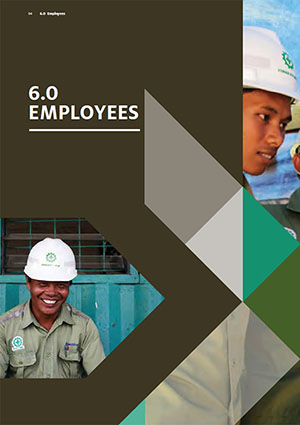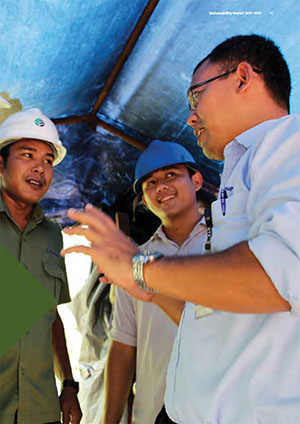As an operator of both forestry plantations and a large industrial facility, safety is of critical importance to APRIL.
Our Occupational Health and Safety (OHS) policy promotes the maintenance of a safe, healthy and secure work environment for all employees, temporary staff, contractors, customers and visitors. “Safety First” must become the dominant mindset for any person connected to our operations.
A most concerning aspect of our operating activities over 2011 and 2012 was the occurrence of injuries and fatalities.
We must be able to assure our employees and their families that APRIL’s businesses will become safer places to work.
Whilst forestry is inherently a hazardous industry and in our case this situation is exacerbated by the remoteness of our plantations, this can in no way excuse loss of life.
Accordingly, APRIL has engaged in a new set of safety programmes and initiatives with contractor safety management becoming a major area of emphasis. We have undertaken a major overhaul of our company’s approach to the management of its occupational health and safety.
Safety statistics reported and other observations during the first half of 2013 suggest these programs are having a positive effect.
We have set ourselves a goal of Zero Accidents. This requires a company-wide commitment. The alternative, to allow the situation of recent years to persist, is not an option.
Read more ...

